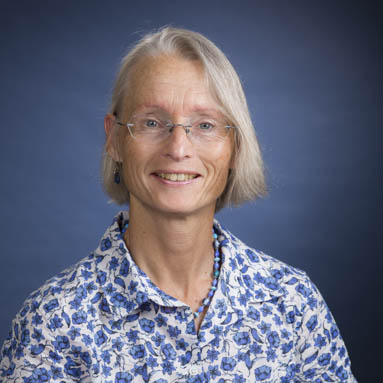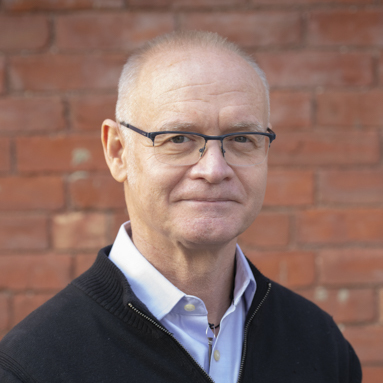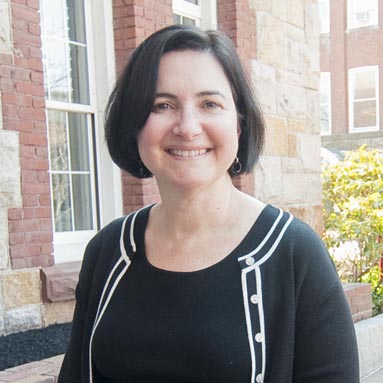Language Programs
A WPI education isn’t all about STEM; the arts, music, and languages are also crucial—in fact, the humanities are a huge part of what makes WPI students the engineers, scientists, and individuals who go on to change the world. As a student, you can complete a minor in your choice of four languages—Arabic, Chinese, German, and Spanish—during your time on campus through immersion programs, project work, independent studies, and capstone projects where you’ll focus not only on fluency, but learning about the culture and history of the areas where your language of choice is prevalent. Learn from professors who are experts in their fields and prepare for a postgraduation life that’s just as unique as you are.
WPI offers several languages for students to study. Once you’ve found one that interests you, visit the Foreign Language minor page for more logistical details, including contact information, minor application forms, and links to curricula.
Arabic
A key component of the Arabic Humanities & Arts (HUA) Requirement and minor is flexibility. Whether your interests lie in Arabic language and culture or the history, philosophy, and religion of the Middle East and North Africa (MENA)—or a mix of them all—it’s within reach. Here are just a few of the ways you can satisfy your HUA Requirement, customize available courses to earn minors, and set yourself up with the opportunity to complete additional project work on campus or at the Morocco Project Center.
- Complete your HUA requirement in Arabic by taking six Arabic courses (three elementary and three intermediate) and three additional courses on campus or at the Morocco HUA Project Center
- Continue studying Arabic beyond your HUA Requirement and earn a minor in Arabic—take six Arabic courses (three elementary and three intermediate) and three additional Arabic independent study courses on campus, or three additional courses at the Morocco HUA Project Center, and you’re all set
- Complete five courses (a combination of Arabic- and MENA-focused courses in INTL, HI, HU, and PY/RE, for example) as well as a humanities inquiry seminar (HU 3900) to satisfy your HUA Requirement in MENA studies
- Build on your interest in the Middle East and North Africa to earn a minor—in addition to your HUA Requirement, complete three additional HUA courses that focus on MENA on campus or at the Morocco HUA Project Center
Check out the Arabic Advising Sheet for details, and start planning a trajectory that’s immersive, collaborative, and entirely yours.
Projects at the Morocco Project Center
Don’t just stop at a minor—follow your passion for Arabic language and Arab culture through your entire time at WPI with the opportunity to complete both your HUA Requirement and IQP at the Morocco Project Center. Examples of recent student work include projects focused on psychiatric healthcare in Morocco, navigating public spaces as a woman in Morocco, and ethnographic studies of Zellige craftsmen.
Chinese
The Chinese language is one of the oldest in the world, and with the growing importance of Greater China on the global stage, the study of Chinese language and culture has taken on a new and greater urgency in the United States.
Offering courses ranging from beginner to advanced levels, the Chinese program at WPI is dedicated to helping all interested students learn Chinese and gain knowledge about Chinese culture and society. You’ll take advantage of student-centered, communicative pedagogical methods to improve proficiency in listening comprehension, speaking, reading, and writing. You may use your Chinese coursework to not only earn a minor, but satisfy your HUA Requirement.
If you have a background in Chinese (if you’ve studied the language in a formal setting or grew up in an environment where Mandarin Chinese or other dialects were spoken) prior to entering WPI, you’re required to have a placement interview with the program coordinator before or on registration days, and are strongly advised to take the course into which you’re placed. You may contact Wen-Hua Du with any questions or for more information about the placement interview.
Projects at Chinese Project Centers
Each year, dozens of WPI undergraduates travel to China to complete their IQPs and MQPs at project centers in Hong Kong, Hangzhou, Beijing, and Taiwan. Students have the chance to immerse themselves in new cultures, make connections with local students, and take on real-world challenges through project work that ranges from working with NGOs to develop a mental health app to identifying ways to preserve the Chinese White Dolphin by controlling marine traffic.
German
WPI’s German program offers special opportunities for you to navigate the university’s curriculum. If you complete three terms of German at WPI, you’ll be eligible to participate in an exchange program in Konstanz, Germany, where you may complete your HUA Requirement (in your first year, no less). Not ready to go abroad? No worries—your HUA Requirement can be completed on campus. Project centers in Berlin and Zurich offer even more opportunities for immersive engagement. A unique combination of independent studies and advanced coursework on campus will enable you to complete a minor in German.
Japanese
Still new to WPI and in experimental status, Japanese courses allow you to explore the language and culture that make up this dynamic set of islands. Students who take our introductory sequence will learn how to read and write hiragana, katakana, and some kanji. They will speak pera pera (the Japanese word for fluently or with ease) in beginning conversational structures. The courses use the Genki books, which are geared toward conversation and culture. So whether you love anime or games or if you like zen and tea ceremony, this is the course for you.
Students who want to complete their HUA requirement in Japanese language and culture can take the language sequence on campus and then spend their summer in Japan on an HUA project center, traveling to such places as Tokyo, Kyoto, Hiroshima, Nagoya, Osaka, and more, focusing on popular culture and place-based cultural expressions. The language course also prepares you well for the IQP center or one of our major-specific center in Japan.
Spanish
WPI’s intensive Spanish courses will immerse you in all aspects of Spanish language, culture, and history while also providing you with the opportunity to travel to immersive project sites, where you’ll be able to complete project work while perfecting your language skills. You may use your Spanish coursework to not only earn a minor, but satisfy the HUA Requirement.
Use a Language Minor During IQP and MQP
WPI students complete project work at one of 50+ project centers around the world. For many of them, it’s not only a chance to make an impact on a global scale, but to immerse themselves in another culture through language. Several project centers are immersive, meaning that students have the opportunity to perfect their fluency in languages while completing their project work.
Integrated Skills in English (ISE)
Our English language courses are designed for non-native English speakers who want to continue learning English at the college level. We offer three levels of writing instruction, and specialized courses in reading, listening, and speaking. International students may take six English (ISE) courses to complete the HUA Requirement. For more information, contact Esther Boucher-Yip or Althea Danielski.
Faculty Profiles




